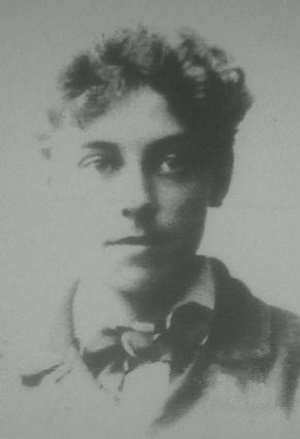Charlotte Mew 1869-1928

Charlotte Mew was born in London in 1869, the daughter of an architect and one of seven children. Her life was blighted by tragedy, three of her siblings dying young and a further two being committed to a mental institution at an early age. She was educated at Gower Street School in London and later attended lectures at University College, London.
She published her first short story, Passed, in a periodical, The Yellow Book, in 1894 and in the years that followed she contributed essays and short stories regularly to several magazines. Her father died in 1898, leaving her mother, her sister, and herself in straitened circumstances, which necessitated their renting out a part of the family home. After the turn of the century she started to write poetry but it was not until 1916 that she achieved recognition with the publication of a collection of poems entitled The Farmer’s Bride. In 1923 she was granted a Civil List pension of £75 a year after a number of prominent poets had lobbied for this on her behalf.
Her sister Anne, to whom she was very close, died of cancer in 1926, after which Charlotte lapsed into deep depression, finally ending her own life by taking poison. Both she and Anne died unmarried.
Her poetry had many admirers among the literary giants of the day, including Thomas Hardy, John Masefield, Walter de la Mare, and Siegfried Sassoon. Her poetry is written in unpretentious, natural, direct language and, in view of her unhappy and insecure life, it is not surprising that it is percolated with themes of death, mental illness, loneliness, disillusionment, and rejection. A final collection of her poems, The Rambling Sailor, was published posthumously in 1929, edited by her friend Alida Monro.
Works include
Books you might enjoy
Buy books related to Charlotte Mew at amazon.co.uk
Support this site
Please help us to improve this site by supporting the site on Patreon. As a supporter you will get access to the English Verse Discord server, where you can meet other poetry enthusiasts and help shape the development of the site.